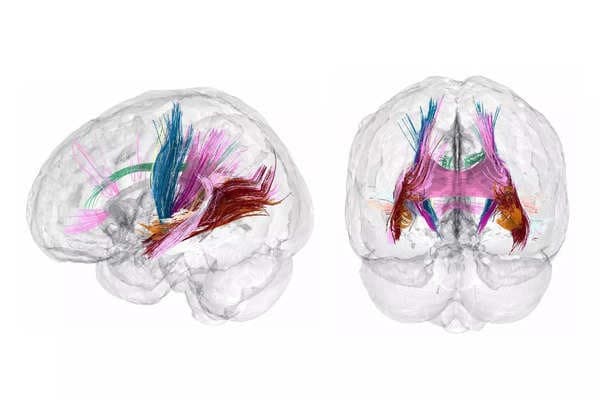Friday 18 April 2025
How Brain Transformed After Pregnancy in Women?
Share

Research at the University of California has discovered that pregnancy causes significant changes in the brains of women. A recent study reveals that a decrease in grey matter and an increase in white matter integrity, are both essential for helping mothers to adapt to the challenges of motherhood and connect with their newborns.
These changes appear to correlate with rising levels of pregnancy hormones such as estradiol and progesterone.

The study titled Neuroanatomical Changes Observed Over the Course of a Human Pregnancy, monitored the brain changes of a first-time mother over three yearsstarting just before conception through pregnancy and two years postpartum (after childbirth). Researchers utilized advanced brain imaging techniques to map these changes.
The study found a notable reduction of grey matter, which plays a crucial role in muscle control and sensory perception. Although this reduction might sound concerning, scientists suggest it reflects a fine-tuning of brain circuits rather than a negative outcome.
Similar changes occur during puberty, where the brain reshapes itself to become more specialized. After childbirth, a slight increase in grey matter was observed, suggesting that these changes may help mothers better connect emotionally with their newborns and become more responsive to their babies’ needs.
Alongside the reduction in grey matter, the study also observed an increase in white matter microstructural integrity. White matter consists of long nerve fibers that connect different regions of the brain, enabling efficient communication.
The study suggests that these connections improved during pregnancy, especially in the second and third trimesters, and began to return to baseline levels after childbirth. The improvement likely supports the brains ability to manage numerous physical and emotional changes that occur during pregnancy.
The term Mommy Brain Phenomenon is commonly used to describe the forgetfulness and mental fog experienced by some women during pregnancy.
Elizabeth Chrastil, the lead participant in the study and neurologist mentioned that she did not notice any changes during the research. However, the results suggest that cognitive changes can happen, even if they are not easily noticeable.
Pregnancy impacts much more than just the brain. Women undergo numerous hormonal changes, along with changes in cardiovascular and respiratory functions, as their bodies adjust to nurture a developing baby.
After childbirth, mothers may also observe changes in their mood, metabolism, and sleep habits. The increase in oxytocin, often referred to as the love hormone is crucial for creating emotional connections with the baby and promoting maternal health.
However, these changes can also lead to challenges, including postpartum depression. The researchers aim to continue their work in hopes of predicting how these brain changes could indicate risk for issues like preeclampsia and postpartum depression.
This innovative research offers important insights into the major and adaptive changes that occur in a womans brain during and after pregnancy. As scientists deepen their understanding of these transformations, they could improve our knowledge of maternal mental health and improve support systems for new mothers.
Newsletter
Stay up to date with all the latest News that affects you in politics, finance and more.